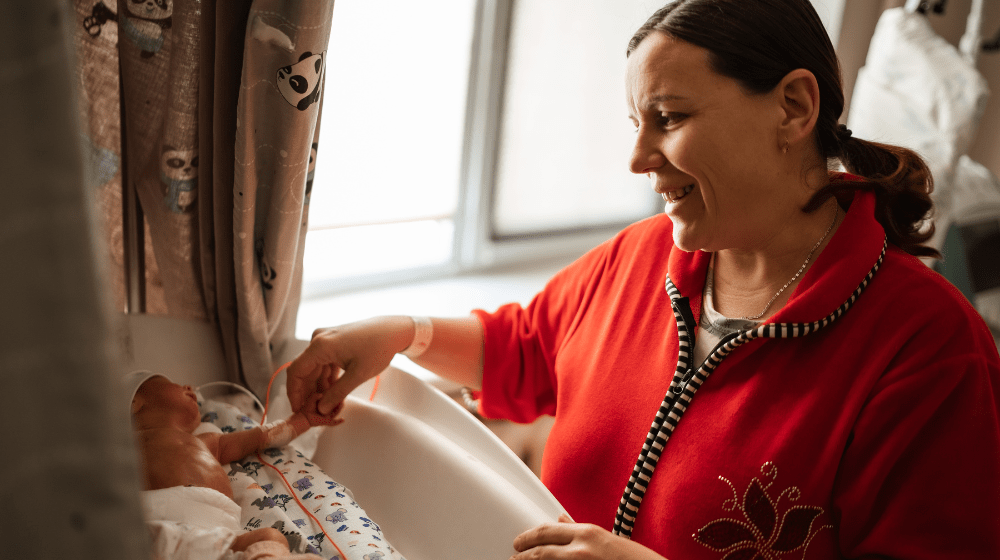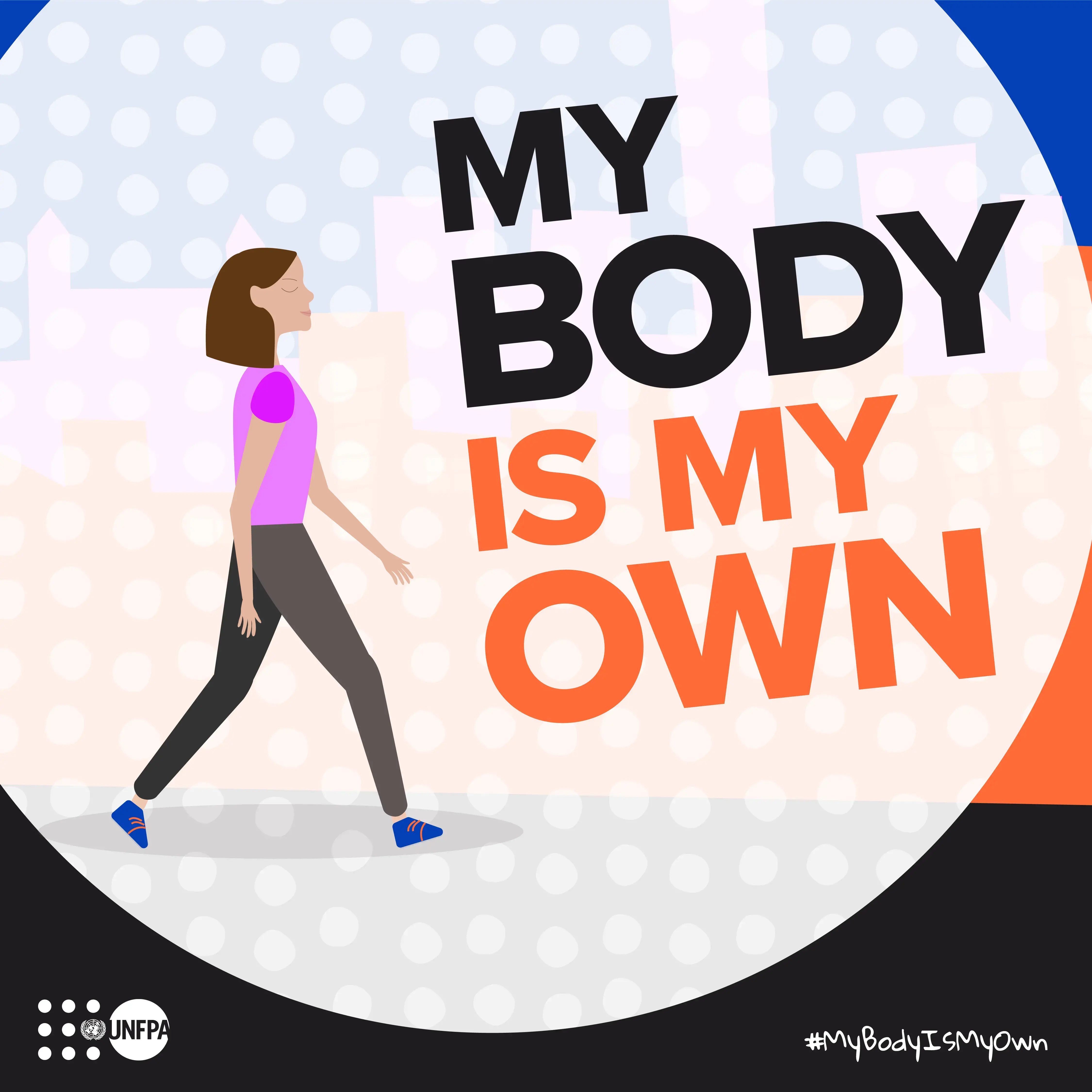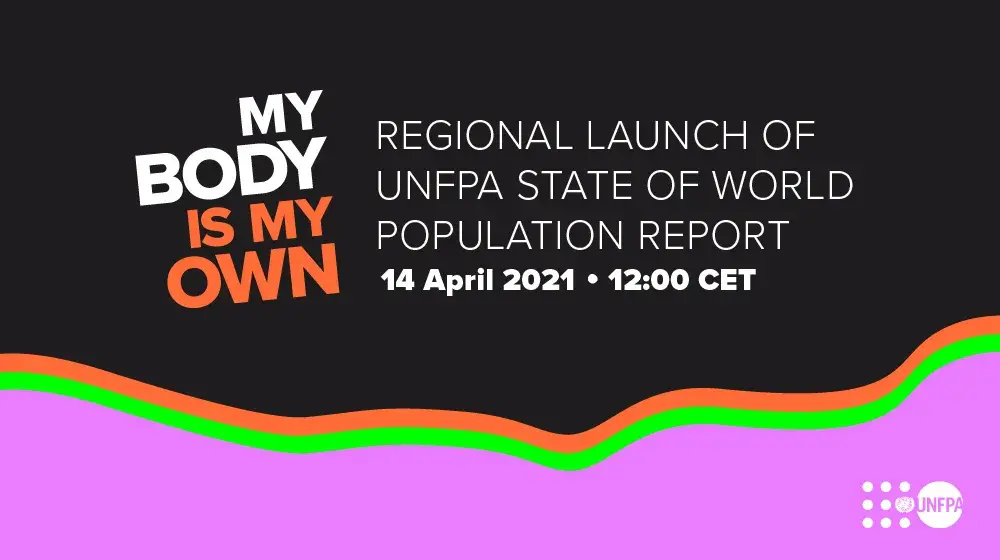Kyiv, Ukraine - “Arthem is my fourth child, but his birth was a new experience for me as a mother,” Nataliia shares with UNFPA. She gave birth to Artem at 28 weeks, he was two months premature.
On 24 February, Russia invaded Ukraine. The world was shocked by images of pregnant women giving birth in underground metro stations, hospital basements and makeshift bomb shelters.
Nataliia was four-month pregnant when the war started, and already a mother to three, was thrilled to find out she was having another baby boy.
Despite the shelling across the country, Nataliia and her family decided to stay in the Kyiv region. It was where she had given birth to her three other children and was her haven. She felt that staying at home, or even in the basement, would be better for her family, and she’d be closer to her husband, especially while pregnant.
“We felt safe in our house,” she recalls. “Although our days were filled with sirens and tremblings, and nothing was like it used to be.” The family were, however, too afraid to venture outside.
The mounting pressures of daily life began to take their toll and impact Nataliia’s pregnancy. The constant shelling, having to hide in the shelter every time the siren went off, her friends and family fleeing their homes, thoughts of losing her husband and the fear of her house being hit caused her anxiety and stress levels to soar. On 2 May, two months before her due date, Nataliia's waters broke and she was rushed to the hospital. Artem was born later that day weighing just 1.6 kg.
“I couldn’t understand what had happened,” Nataliia explains. “My three other children all had normal deliveries and were born full-term. Artem was supposed to be born in July, not May.”
The war in Ukraine has had a major yet silent impact on childbirth; many hospitals have reported an increase in premature babies. With health facilities destroyed and damaged, and essential supplies, including oxygen, running low, thousands of pregnant women have been denied access to lifesaving services and skilled care and support, making childbirth fraught with danger.
Artem was nursed in an incubator for the first two weeks of his life and received critical care from the nurses and doctors.
“He was very ill and unstable and so tiny. I couldn’t hold him because he was too fragile,” Nataliia remembers while holding Artem’s tiny hands. “I was so scared. I didn’t know how to pick him up, I worried I might damage his little bones.”
Nataliia gave birth to her son at the Kyiv perinatal hospital, one of 33 health facilities UNFPA has supported with life-saving reproductive health medicines, supplies and equipment since the war began More than 70 metric tonnes have been distributed to facilities in war-torn cities across the country in the last four months, sustaining access to maternal and newborn health services, including emergency obstetric care. UNFPA is also supporting three mobile health clinics in Kyiv, Vinnitsya and Lviv, where a gynaecologist and nurse deal with women’s most pressing sexual and reproductive health needs.
UNFPA is working closely with the Government of Ukraine and partners to ensure that sexual and reproductive health services that are essential for women and girls' well-being – and in some cases survival – continue to function, notwithstanding the challenges on the ground. Our focus remains to ensure that the war does not strip women of their rights, including their right to give birth safely and with dignity.
Although Nataliia is now home in Kiyv, Artem’s traumatic birth is all too fresh in her mind: “As a mother, there is nothing worse than going through long months of pregnancy, followed by painful labour, only to see your baby fighting for his life.”
The story of Natalia and her newborn Artem





